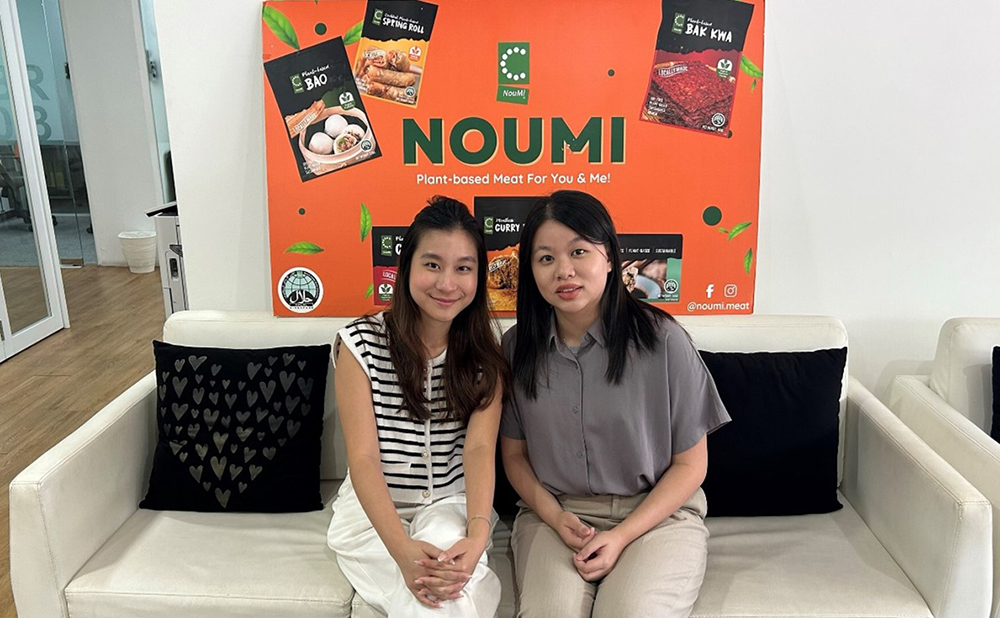Scaling Alternative Protein that Looks, Cooks and Tastes Like the Real Thing
In Singapore’s growing alternative protein sector, achieving the perfect balance of taste, texture, cost, and scalability remains a challenge. Ants Innovate, a local food-tech startup, set out to change this — by combining cultivated cells with plant-based ingredients to create hybrid meat cuts that are both affordable and convincing to the palate. Through A*STAR’s T-Up programme and the Integrated Work Study Programme (IWSP) with the Singapore Institute of Technology (SIT), Ants Innovate accelerated its R&D, scaled production innovations, and nurtured new talent, positioning itself as a competitive player in the global alternative protein market.
Jump to Section: The Challenge | Our Innovation | The Impact

The Challenge
While cultivated meat has generated global interest, its commercialisation is hindered by:
- High production costs: Existing methods such as 3D printing produce realistic textures but are too slow and expensive for mass market adoption.
- Limitations in existing scalable methods: High moisture extrusion offers volume but compromises on texture — producing fibres that separate during cooking, resulting in an unsatisfying bite.
- Need for distinctive market positioning: Plant-based products risk blending into a crowded field without clear sensory advantages.
Ants Innovate sought a solution that would deliver:
- The fibrous structure and mouthfeel of real meat;
- Enhanced, authentic flavour;
- Cost efficiency at industrial scale.
Our Innovation
R&D secondments through T-Up
- Dr Chen Qimin, from A*STAR Bioprocessing Technology Institute (A*STAR BTI), joined Ants Innovate in 2021 to develop its first plant-based product line — dumplings, bak kwa, and curry puffs. She introduced Cell Essence, a cultivated pork cell-derived flavour enhancer that provided a natural “meaty” note, setting the foundation for hybrid products.
- Dr Ng Shengyong, also from A*STAR BTI, was seconded in 2023 to advance texturing technology. His work with the team led to the Scalable Micro-Imprinted Lapis Expansion (SMILE) process — an approach inspired by semiconductor manufacturing that stacks micro-perforated plant-protein sheets to replicate the heterogeneous texture of whole-cut meat.
Integration of flavour and texture innovations
- Combining SMILE with Cell Essence reduced animal cell usage to under 3%, compared with an industry norm of up to 70%, while maintaining authentic taste and texture.
- The adaptable Cell Essence formulation allows flavour replication across pork, beef, and seafood.
Talent pipeline through IWSP
- SIT student Yvette Tay worked under Dr Chen’s mentorship to enhance Ants Innovate’s bak kwa series, creating six new flavours and extending shelf life from 2 weeks to 2 months. Her work bridged academic training with commercial product demands.

Gwendolyn Koh (left), Business Development Manager at Ants Innovate with Yvette Tay (right), who was attached to the Product Development department of Ants Innovate in 2023
The Impact
With T-Up’s support, we were able to launch the products into the market in 2022, doubling in revenue in 2023. This initial market entry provided a ready test-bed for subsequent product innovations and established Ants Innovate as a significant player in the alternative protein market.
– Prof Hanry Yu, Co-founder of Ants Innovate
With support from A*STAR, and the scientists seconded to Ants Innovate, they were able to achieve
- The launch of their first commercial product line – NouMi bak kwa, in 2022, doubling revenue in 2023. NouMi has since spun-off into a separate entity focusing on plant-based products.
- Lower production costs — SMILE costs approximately one-tenth of conventional high moisture extrusion.
- Expansion prospects in China and Malaysia to access larger markets.
A*STAR celebrates International Women's Day

From groundbreaking discoveries to cutting-edge research, our researchers are empowering the next generation of female science, technology, engineering and mathematics (STEM) leaders.
Get inspired by our #WomeninSTEM






